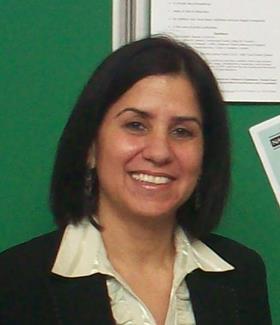Independent social workers are struggling to provide courts with reliable assessments in family cases involving vulnerable children or quitting legal aid work due to an ongoing pay freeze, a professional body has warned.
Nagalro, which represents social work practitioners, said updated guidance issued this month by the Legal Aid Agency on the remuneration of expert witnesses shows that comments made by the president of the family division last year 'have fallen on deaf ears'. Sir Andrew McFarlane told a conference for expert witnesses that if the tightening up of the regime for instructing experts, combined with a pay freeze, had resulted in supply drying up, then these issues 'may need to be looked at again'.
Nagalro said the hourly rate for most expert witnesses has not risen since 2013, when hourly fees payable to independent social workers was capped at £33. The association hoped the effects of inflation would be reflected in the guidance, reissued at the start of the latest financial year.
Prior authority is also required if the number of hours to assess one individual exceeds 30 hours.
The social worker's work can include reading all the evidence as well as interviewing the parents, the child, foster carers, schools, family court advisers and other significant individuals in the child's life, and writing a court report. However, the association said many social workers regularly spend more than 30 hours for the sake of the child.
Sukhchandan Kaur, chair of Nagalro, said: 'Many of our members, who bring with them postgraduate qualifications and tens of years of frontline experience, are left feeling that the government does not value their skills, or the work which they can do, but is still happy to take advantage of their commitment to vulnerable and disadvantaged children.'

An increasing number of members have taken the 'sad and reluctant decision' to no longer take on legal aid cases because they cannot afford to, the association said. 'Others say that they are not able to undertake a reliable assessment due to the limit on the number of hours which would leave their assessment lacking "sufficient depth and scope" to be of real value to the child or to the court and may compromise decisions about children's future,' it added.
The guidance states that the agency's benchmark for hours does not equate to a cap, but 'detailed reasons' must be given to justify the greater number of hours that will be required.
A Ministry of Justice spokesperson told the Gazette: 'The government will continue to ensure that every aspect of fee remuneration represents value for money. This includes the fees currently paid to experts.'

















![David Lester (senior partner at Blythe Liggins), Darryl Barnes, Jagdeep Sandher (head of dispute resolution at Blythe Liggins)[4]](https://d1d8vslyhr7rdg.cloudfront.net/Pictures/274x183/4/2/8/116428_davidlesterseniorpartneratblytheligginsdarrylbarnesjagdeepsandherheadofdisputeresolutionatblytheliggins4_981603_crop.jpg)






4 Readers' comments